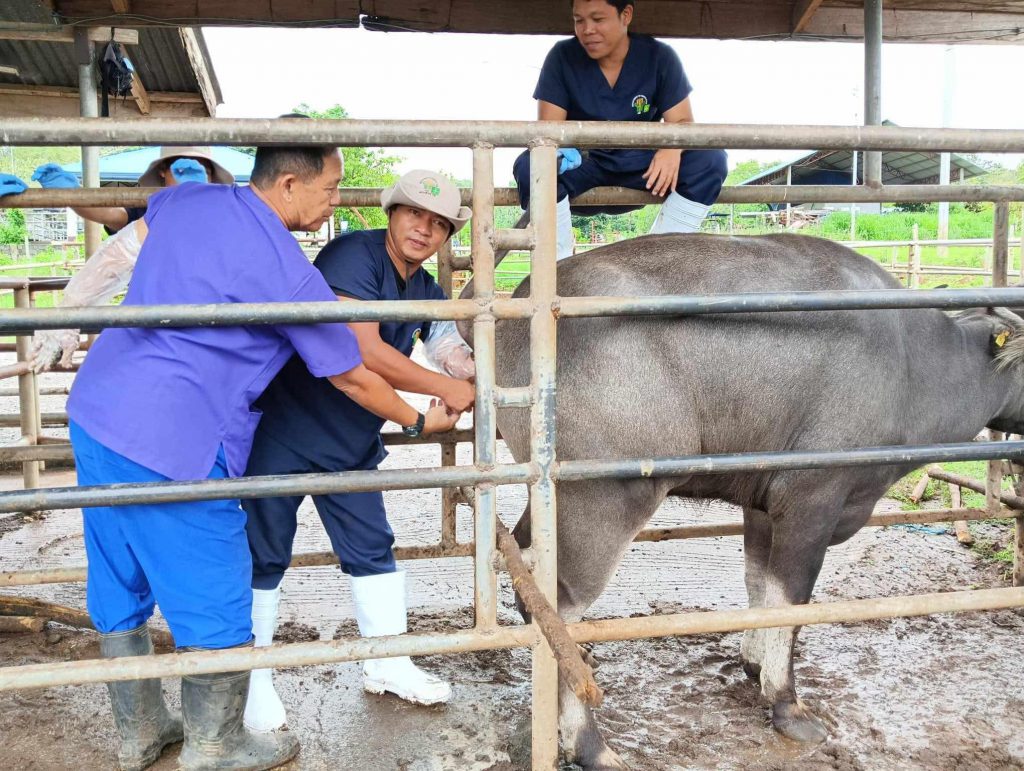
To enhance artificial insemination (AI) efficiency and improve the reproductive efficiency in water buffaloes in the Caraga Region, the DA-Philippine Carabao Center at Central Mindanao University (DA-PCC at CMU) collaborated with DA-Agricultural Training InstituteRegional Training Center XIII (DA-ATI-RTC XIII).
Held from June 3 to 21 at the Regional Training Center in Musuan, Maramag, Bukidnon, the training program was attended by 13 select Agricultural Extension Workers (AEWs) from the Caraga Region. Most participants had prior training in pregnancy diagnosis and artificial insemination for cattle and water buffaloes.
The DA-PCC at CMUs team of experts, led by Center Director Dr. Lowell Paraguas, included Armando Racho, Ramon Soliven Jr., and resource speakers from the College of Veterinary Medicine at CMU, Dr. Jose Escarlos Jr. and Dr. Ampie Magdalene Sua. Experts from DA-PCC National Headquarters such as Dr. Edwin Atabay, national artificial insemination coordinator, and Joselito Del Rosario also served as training resource speakers.
According to Dr. Paraguas, this training combined theoretical lectures with practical assessments, addressing the challenges in implementing the Genetic Improvement Program (GIP) in the region.
One of the challenges in the Genetic Improvement Program by the center is to increase the number of active AI technicians from various local government units (LGUs) and village-based artificial insemination technicians (VBAITs) across Mindanao to consistently provide more AI services and increase calf drop rates for water buffaloes and cattle, Dr. Paraguas explained.
Dr. Atabay emphasized the importance of a Triple E strategy: enhancing pregnancy rates, implementing an effective rebreeding program, and early detection of pregnancy.
The primary objective of the program is to improve the pregnancy rates of the countrys water buffaloes, aligning with the agencys responsibility to propagate and protect the animals, Dr. Atabay stated.
During the culmination program, ATI Information Officer II Ginalyn Arbutante highlighted the critical role of trained individuals in intensifying the genetic improvement program for carabao and cattle in their respective provinces.
We look forward to the graduates giving back to their communities by sharing the expertise and new skills they acquired during the 20 days of training, Arbutante added.
Additionally, Dr. Elena Paraguas, the CMU Training Coordinator for DA-PCC, thanked ATI for the financial support. According to her, this program will greatly improve calf drop efficiency, which will raise milk production to meet the nations demand and specifically support the Department of Educations (DepEd) and the Department of Social Welfare and Developments (DSWD) Milk Feeding Program.











